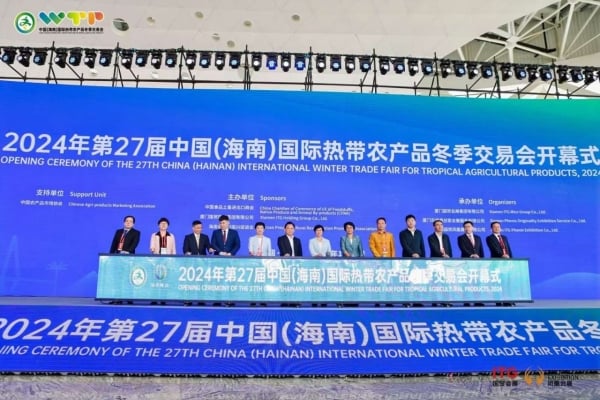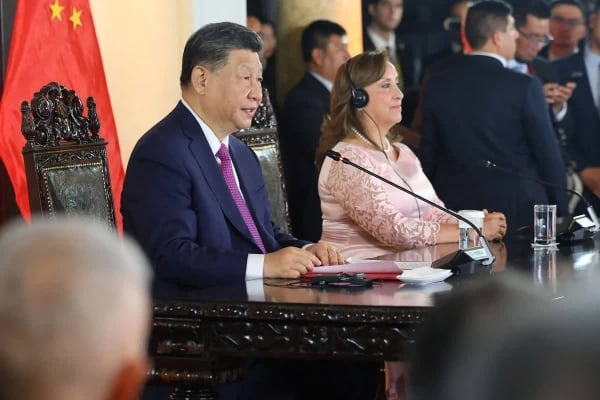Young Chinese are increasingly flocking to the countryside to work as urban unemployment continues to rise and record numbers of university graduates emerge.
In recent years, Wendy Li has seen programs that encourage graduates to work in vast, underdeveloped rural areas. They are not new in China, but have attracted more than three times the number of applicants this year, according to Li.
Working for the student union at a university in Zhuhai, Guangdong, Li said that a few years ago there were only about a dozen people who signed up, but now there are 40. "The program seems to be more attractive this year," she said.
China is stepping up efforts to encourage young people to start businesses in the countryside amid growing employment pressures. Chinese President Xi Jinping has also called for “rural revitalization” to narrow the development gap between urban and rural areas.
According to the action plan issued in February, graduates will work as grassroots cadres, entrepreneurs or volunteers to contribute to the “return of talents, resources and projects” in rural areas. Along with Guangdong, most provinces have also expanded the program by increasing the number of personnel and scope of dispatch.
In Jiangsu, the program previously targeted underdeveloped areas in five relatively poor regions. However, it was expanded to cover the entire province last year, aiming to send at least 2,000 graduates to rural areas each year.
Peng Peng, executive chairman of the Guangdong Reform Association, a think tank affiliated with the Guangdong provincial government, said such moves are aimed at giving young people more job opportunities in a tough labor market.
"Young people in urban areas are having a hard time finding jobs due to the impact of the pandemic and the unprecedented number of university graduates," Peng said.
China's unemployment rate for 16-24 year olds hit a record 20.4% last month, up from 19.6% in March. Meanwhile, this year's university graduates will peak at 11.58 million, equivalent to the population of Belgium.
“The second goal of these policies is to revitalize the countryside, where talent and technology are most needed,” Peng said. According to him, the countryside is the weak link in China’s modernization path. Therefore, reviving this area is considered a national strategy for Beijing.
The income gap between urban and rural China remains large, despite a slight improvement over the past decade. Last year, the average disposable income of rural residents was 20,133 yuan ($2,853) a year, compared with 49,283 for urban residents, according to the National Bureau of Statistics.
Stressing that China cannot become a real power without strong agriculture and prosperous villages, Mr. Xi called on local governments to attract not only university students but also entrepreneurs and farmers who had previously left their hometowns to seek work in cities.
"We should guide graduates, capable people, migrant workers and entrepreneurs to return to the countryside in an orderly manner, and help resolve their concerns so that they can stay and start businesses," he said at a national rural employment conference in December 2022.
Zheng Fengtian, a professor at Renmin University’s school of agricultural and rural development, said talent is one of the most needed resources for underdeveloped regions. In some places in central China, some businesses have emerged from poverty alleviation efforts. Others have moved from wealthier regions like Shenzhen and Guangzhou. “Now they need talent to develop further,” he said.
For many, joining rural programs is more of a post-graduation transition—as finding a suitable job becomes more difficult—than a long-term commitment. Li Qing, a 2022 graduate, has been working in the town government's rural revitalization program in Yangzhou, Jiangsu Province, since the beginning of the year.
She came to the program after failing her master's exam and not knowing what she really wanted. "I thought this opportunity could be a good transition option, especially since my family suggested I become a civil servant," she said. Li receives a monthly allowance of "several thousand yuan" to cover accommodation and transportation. She said she has not learned much from her current job except for the strict work and behavior style of a government agency.
Most of the participants from Li’s university in Zhuhai will work as teachers or volunteers in village schools, or as cadres who monitor villagers’ risk of falling back into poverty. After two years of service, they can choose to stay or pursue new jobs elsewhere. “From what I know, very few people actually stay and settle in those villages, as the government expects,” Li said.
Joan Huang, a sophomore at a university in Guangzhou, Guangdong, is not interested in rural programs because she sees no career prospects. She believes that participants mostly take low-level positions in grassroots government agencies.
There are still opportunities in big infrastructure or smart agriculture, but these are not available to the average student. “The economy in these areas is very bad and it is almost impossible for graduates to start a business, except for opening a milk tea shop,” she said.
In addition, this student analyzed that if he worked at local companies, the salary would be low and might not be enough to cover the university tuition that his family had spent. When he returned to big cities, the work experience in the countryside would be useless.

Xia Meixiong, 34, livestreams to sell goods in Shouning, Ningde, Fujian on August 25, 2022. Photo: Xinhua
But for some people, living in a small town may not be worse than living in a big city. They can buy a house after working for just a few years. Janice Wang, 28, returned to her hometown in Anji County, Zhejiang, three years ago.
She worked as a teacher in the city after graduating from university in 2016. But then, she was attracted by the increasingly invested countryside, lower living costs and slower pace of life, so she decided to return to her hometown to run a guesthouse in 2020.
While it is difficult for fresh graduates to see a future in rural villages, she said starting a business in rural areas became a viable and desirable option after saving some money.
Janice Wang does not have to pay rent or buy a house because her family owns it. She points out the advantages of good infrastructure and fresh air. In addition, running a guesthouse is not easy but it is more free and happy.
"Business is not bad, although there has been some negative impact from the pandemic lockdown in recent years. The number of retirees is increasing, and there is a great demand for travel and cheap accommodation. So overall, I have less pressure living this way," Wang said.
Phien An ( according to SCMP )
Source link











































![[Photo] Prime Minister Pham Minh Chinh chairs Government Conference with localities on economic growth](https://vstatic.vietnam.vn/vietnam/resource/IMAGE/2025/2/21/f34583484f2643a2a2b72168a0d64baa)


























































Comment (0)